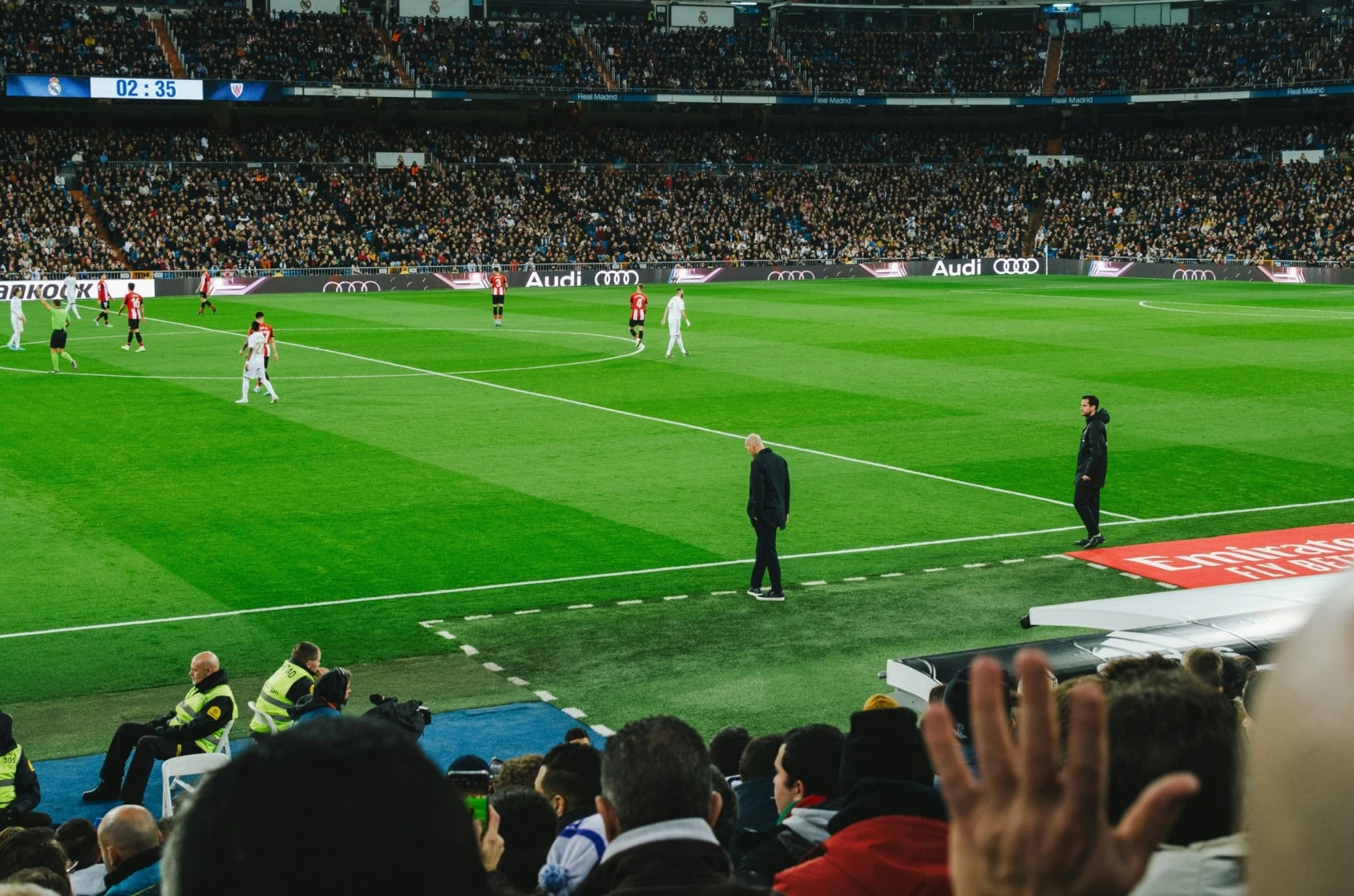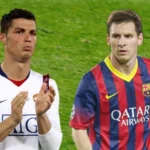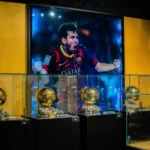How Zinedine Zidane a Marseille boy grew to become football’s best artist and most triumphant coach
Introduction: The Dance of the Maestro
The first time I ever saw Zinedine Zidane play live, I knew why they had nicknamed him “Le Magician.” It wasn’t merely his technical wizardry—although that was evident in every pass—but the effortless elegance with which he dictated the pace of a whole game. In a game of mayhem, Zinedine Zidane pirouetted like a ballerina leading an orchestra, every pirouette and roulette step choreographed with balletic precision.
Few players in the history of the game have brought respect across the generations like Zinedine Zidane. From the city streets of Marseille’s La Castellane concrete to the holy turf of Santiago Bernabéu, Zidane’s is a journey that’s more about than sporting brilliance—it’s an education in reinvention, in staying power, and in pushing oneself to the limit in many areas.
From Humble Beginnings to Global Icon
The Algerian Roots That Made a Champion
Raised by Algerian immigrants in the tough La Castellane neighborhood of Marseille on June 23, 1972, Zinedine Zidane’s home life was humble by any measure. His father Smaïl was a warehouseman, and his mother Malika was a homemaker to Zinedine and his four siblings.
This immigrant journey profoundly affected the man who would come to be known as “Zizou.” The lessons he learned—hard work, humility, respect, and family loyalty—would go on to influence both his style of play and management style.
Early Career: Finding His Footing
Only 14 years old when he was scouted by AS Cannes, tall teens at French Football Federation’s training camp showed exceptional ball skills. He became a professional when he was only 17, scoring his very first goal, winning himself the car, a Citroën Clio from club president Alain Pedretti, as a prize.
His subsequent transfer to Bordeaux in 1992 marked the beginning of his technical maturation. In four years with Les Girondins, Zinedine Zidane forged the elegant style of play that would captivate the globe.
The Player: Art in Motion
Juventus: The Making of a Genius (1996-2001)
Few foresaw the radical influence Zidane would leave on Italian football when Juventus signed him in 1996. In five years in Turin, he:
- Won two Serie A championships (1996-97, 1997-98)
- Reached three straight Champions League finals
- Refined the tactical awareness that supported his innate ability
Under Marcello Lippi, Zidane evolved from a talented midfielder to the world’s best playmaker. His rise to football’s heights was rewarded with the 1998 Ballon d’Or and FIFA World Player of the Year.
Real Madrid: Zinedine Zidane in The Galáctico Era (2001-2006)
When Real Madrid recruited Zidane as the world’s most expensive player in 2001 (€77.5 million), President Florentino Pérez declared: “We have signed Zidane because he’s the best player in the world.” His left-foot volley in the 2002 Champions League final against Bayer Leverkusen—possibly the greatest goal in the competition’s history—repaid that investment in one moment.
At Madrid, Zidane was the center of the Galáctico era, winning:
- UEFA Champions League (2001-02)
- La Liga (2002-03)
- Intercontinental Cup (2002)
- Spanish Super Cup (2001, 2003)
International Glory and Tragedy of Zinedine Zidane
Zidane’s international career has the most dichotomy of any footballer in history:
- The sublime: Two headed goals in the 1998 World Cup final, winning France their first-ever World Cup victory
- The infamous: The 2006 World Cup final headbutt of Marco Materazzi in his last professional game
But even during that fit of madness, there was something archetypal Zidane—the reminder that behind the stoic facade seethed hot passion and unyielding sense of personal honour.
Zinedine Zidane as a Manager: Tactical Evolution
Learning the Trade
Following retirement in 2006, Zidane retired from the limelight before again emerging in football’s upper echelons at a deliberate speed. His induction saw him spend time as:
- Special advisor to Real Madrid president Florentino Pérez (2009)
- Sporting director, Real Madrid (2011)
- Assistant to Carlo Ancelotti (2013-2014)
- Real Madrid Castilla manager (2014-2016)
This systematic acquisition of the art of management was in keeping with Zidane’s patient perfectionism—the same perfectionism that marked his playing years.
First Managerial Spell: Record-Breaking Success (2016-2018)
When Zidane took charge at Real Madrid in January 2016, skeptics wondered whether his tactical awareness could keep up with his playing genius. His response was brutal:
- Three successive Champions League titles (2016, 2017, 2018)—a record-breaking feat
- La Liga title (2016-17)
- Two FIFA Club World Cups (2016, 2017)
- Two UEFA Super Cups (2016, 2017)
His relaxed exterior hid an unstoppable tactical brain and excellent man-management skills. Zidane knew when to step in and—perhaps more importantly—when to stand back and allow his players to speak for themselves.
Second Managerial Spell: Proving It Wasn’t Luck (2019-2021)
Since returning to save struggling Madrid in March 2019, Zidane justified those who credited his initial success to luck by claiming:
- La Liga (2019-20)
- Spanish Super Cup (2019-20)
His second spell in charge, with a veteran group and without talisman Cristiano Ronaldo, perhaps demonstrated Zinedine Zidane’s tactical acumen even more convincingly than his initial time in power.
The Zinedine Zidane Effect: Beyond Trophies
Leadership Philosophy
Zinedine Zidane’s leadership style goes against the grain. While the times call for micromanaging bosses, his is defined by:
- Belief in players’ intelligence: “Good players don’t need too many instructions,” he used to explain.
- Emotional intelligence: Being aware of when the players need hard work or a pat on the back on the shoulder.
- Silent leadership: Not having to scream because people respected him already—learned everything on the field.
It works particularly well on elite players, to whom Zinedine Zidane’s actual authority as an extension of his own great playing career is most appealing.
Tactical Flexibility
Even though he has been slammed for having no “philosophy,” Zidane’s utilitarian style of play is a kind of tactical greatness unto itself:
| Perceived Weakness | Actual Strength |
|---|---|
| No fixed style of play | Flexibility towards opposition and staff on hand |
| Minimal tactical instruction | Facilitating player brain power and imagination |
| Relying on individual brilliance | Understanding how to design conditions under which talent can flourish |
Honestly, the stats don’t paint the full picture with Zidane. Here’s a small glimpse:
| What He Did Best | How Good Was He? | Compared to Others? |
|---|---|---|
| Controlling the Ball | Out of This World | Miles ahead of most |
| Seeing the Big Picture | Like he had a bird’s eye view | Top notch, but his way |
| Making the Ball Obey | Seriously Elegant | Less showy, more efficient than most |
| Physical Presence | Solid, but not his emphasis | Depended on technique more |
| Staying Cool Under Fire | Unbelievably Calm | Hard to find that kind of composure |
| Scoring Big Goals | Always Seemed to Appear | Perhaps not a regular goal-scorer, but clutch |
Instead of dictating fixed systems, Zidane develops blueprints in which his players’ finest qualities can be delivered—a doctrine that has yielded outstanding dividends across various eras.
The Cultural Significance Zinedine Zidane: A Footballer Beyond Compare
Going Beyond Sport
Not many athletes go beyond their sport to become cultural icons. Zidane is among this elite group, joining Muhammad Ali, Michael Jordan, and Pelé.
His impact extends football into:
- Cultural imagery: A French-Algerian, Zidane was a dominant image of multicultural France.
- Artistic inspiration: The documentary “Zidane: A 21st Century Portrait” followed him alone for a single game, regarding his movement as a work of art.
- Commercial appeal: His subtle charisma made him an obvious choice to endorse luxury brands as well as sporting companies.
The Zinedine Zidane (Zizou) Paradox
Perhaps most intriguing about Zidane is the paradox he embodies:
- Technically proficient but physically menacing
- Courteously mannered but vulnerable to fits of fury
- Strategically skilled but intuitive during the decisive moments
- Global superstar but exceedingly introverted
These paradoxes make him more human even when he possesses superhuman powers. Even at his peak, there was always something amazingly human about Zidane—something which makes him close to the hearts of people of all generations.
Legacy: The Measure of Greatness
How do we quantify Zidane’s legacy? By trophies alone, one of football’s greatest winners—not only as a player but a manager. By technical quality, few have ever had the talent to match his vision, control, and class.
But perhaps his greatest feat is being real all along. From Marseille to Madrid, Zidane was being faithful to the lessons of his parents: work hard, respect others, humble in triumph and gracious in failure.
As football develops further, new stars will emerge and records will fall. But certain players cannot be measured statistically. Appreciating Zidane was always as much about the beauty of the thing itself rather than the final score.
Conclusion: The Artist’s Final Act?
Up to now in 2025, Zidane’s managerial career continues. Whether he returns to the dugout at Real Madrid, is entrusted with the French national team, or takes on new challenges, his approach will remain distinctly his own—patient, confident, and unbending in the pursuit of perfection.
For those of us who were lucky enough to have seen him play, Zidane will always symbolize football at its highest level. For future generations to learn about him from highlight packages and coaching victories, his life is proof that sport at its best is not just victory—sometimes it is winning with panache, with grace, and with humility.
In a time of sport in which analysis and data cast an ever-lengthening shadow, Zinedine Zidane is a reminder of the unquantifiable—magic that turns a game into art.
Which are your greatest Zinedine Zidane moments? Share your comments below or read our other football legends articles who transformed their eras.
A dedicated tactical analyst with over 10 years of experience studying European football’s elite leagues. Imran follows the Premier League, La Liga, Serie A, and Bundesliga with particular focus on managerial systems and tactical evolution. Watching 2-3 matches weekly across these competitions, he has developed deep insights into how different coaching philosophies translate across leagues and cultures. At Latest in Football, Imran specializes in breaking down complex tactical decisions and managerial appointments for everyday football fans.




